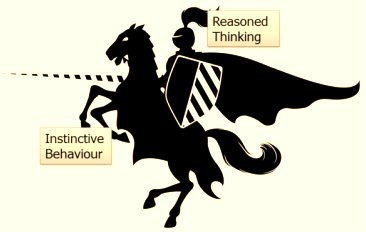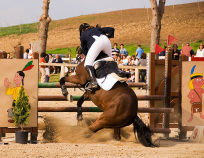A horse 'feels' your emotional state
“If the rider is unsure, fearful or only trying to survive on the horse’s back, this will prompt most horses to become just as unsure, fearful and concerned about survival. The horse is a perfect mirror of the feelings, emotions and even thoughts of whoever is with it, either on the ground or in the saddle”.
Frank Levinson, Horse whisperer.


